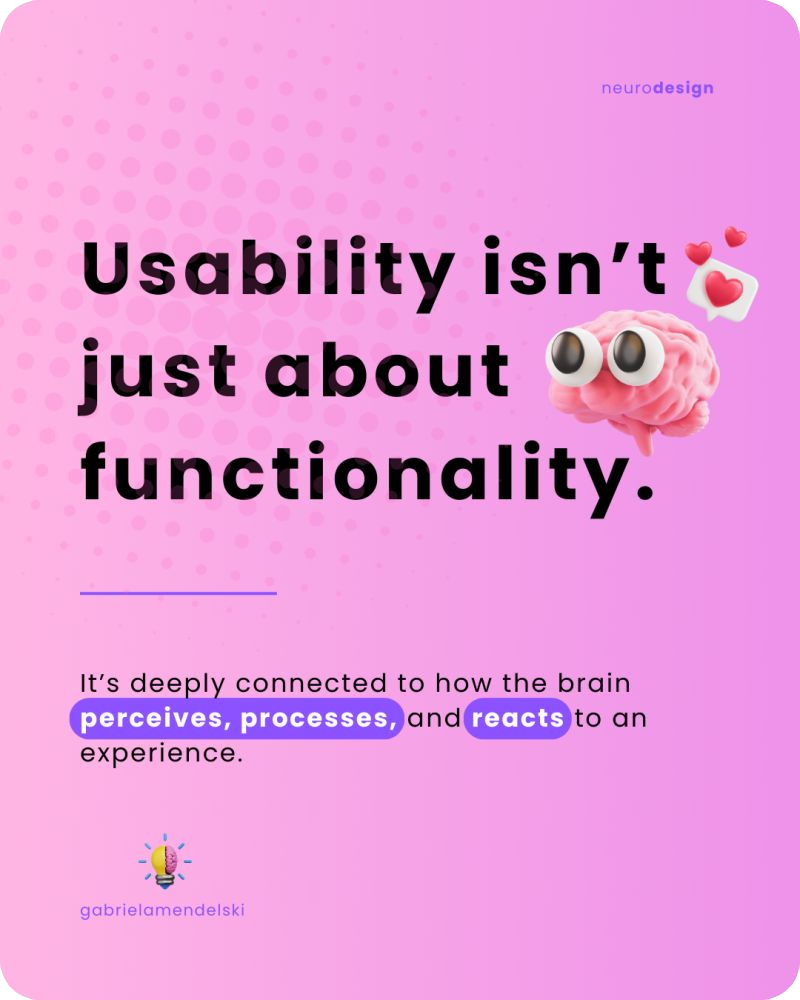
Usability isn't just about functionality
Let's talk about usability... and our brains, of course. 🧠
Usability isn't just about making something work—it's about making it feel effortless. A product can be fully functional, but if it doesn't align with how our brains process information, 🤯 it can still feel frustrating or unintuitive.
Our brains are wired for efficiency. 📈 We naturally gravitate towards designs that minimise effort and make information easy to digest. When an interface feels overwhelming or requires too much mental work, we lose focus, make mistakes, or simply give up. That's why familiar patterns matter—when users can recognise rather than memorise, everything just flows more smoothly.
Beyond cognitive processing, usability also triggers emotional and neurological responses. A seamless, predictable experience fosters a sense of control and satisfaction, 😍 while frustration arises when interactions feel confusing or unpredictable. 😢
👉 At the end of the day, great usability isn't just about function—it's about designing experiences that work with the brain, not against it. When a product feels intuitive it's because it's cognitively optimised: leading to better engagement, retention, and overall satisfaction. ✨
